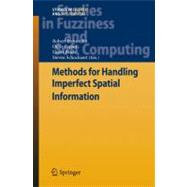
| Introduction: Uncertainty Issues in Spatial Information | p. 1 |
| Describing Spatial Configurations | |
| Spatial Vagueness | p. 15 |
| A General Approach to the Fuzzy Modeling of Spatial Relationships | p. 49 |
| Bipolar Fuzzy Spatial Information: Geometry, Morphology, Spatial Reasoning | p. 75 |
| Fuzzy and Rough Set Approaches for Uncertainty in Spatial Data | p. 103 |
| Symbolic Reasoning and Information Merging | |
| An Exploratory Survey of Logic-Based Formalisms for Spatial Information | p. 133 |
| Revising Geographical Knowledge: A Model for Local Belief Change | p. 165 |
| Merging Expressive Spatial Ontologies Using Formal Concept Analysis with Uncertainty Considerations | p. 189 |
| Generating Fuzzy Regions from Conflicting Spatial Information | p. 211 |
| Prediction and Interpolation | |
| Fuzzy Methods in Image Mining | p. 243 |
| Kriging and Epistemic Uncertainty: A Critical Discussion | p. 269 |
| Scaling Cautious Selection in Spatial Probabilistic Temporal Databases | p. 307 |
| Imperfect Spatiotemporal Information Analysis in a GIS: Application to Archaeological Information Completion Hypothesis | p. 341 |
| Uncertainty in Interaction Modelling: Prospecting the Evolution of Urban Networks in South-Eastern France | p. 357 |
| Author Index | p. 379 |
| Table of Contents provided by Ingram. All Rights Reserved. |
The New copy of this book will include any supplemental materials advertised. Please check the title of the book to determine if it should include any access cards, study guides, lab manuals, CDs, etc.
The Used, Rental and eBook copies of this book are not guaranteed to include any supplemental materials. Typically, only the book itself is included. This is true even if the title states it includes any access cards, study guides, lab manuals, CDs, etc.